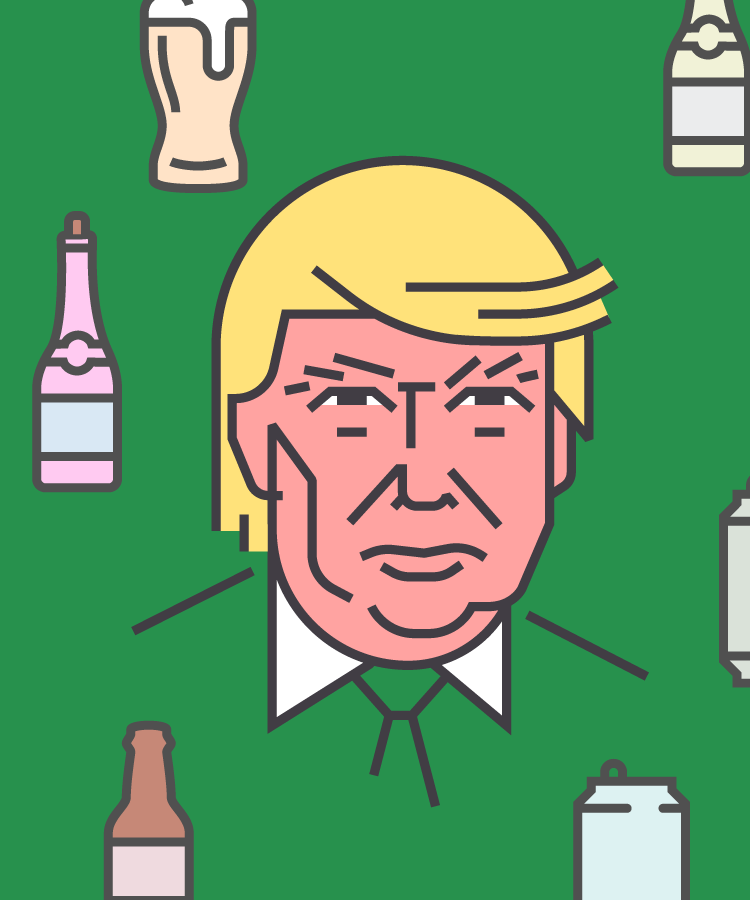President Donald Trump announced on Thursday that he will start the process of taking the United States out of the Paris climate accord. It will take up to four years to break off from the agreement, but once that happens, the United States will join Nicaragua and Syria as the only major countries not involved in the global initiative to combat climate change.
The United States is the second largest greenhouse gas emitter in the world after China. Stepping aside from the Paris Climate Change Agreement leaves countries in the European Union and China take the lead in protecting the planet.
Trump’s decision goes against world leaders and even some members of his own party. He reasons that leaving the agreement will save American jobs. But everyone and everything, jobs included, will be affected by climate change — including the alcohol industry. Severe and even moderate climate change is bad news for renowned wine regions like Burgundy, Napa Valley, and others. Extreme weather conditions affected grape harvest around the world in 2016, and things will only get worse if something isn’t done to mitigate some of the damage.
“The hope was that through this accord we could cut back and reverse the trend and avoid some of the most disastrous effects,” Gail Koelln, the co-director of One Earth Conservation who trained with Al Gore’s Climate Reality Project, tells me over the phone. “Climate change is not going to stop,” she explains. “If anything, it may get worse within our country,” unless cities and states take it upon themselves to lessen greenhouse gases.
Some states have already started to pick up the national slack. As Trump has rapidly been rolling back President Barack Obama’s climate change policies, states like California have stepped up to set their own emissions goals. California’s agricultural industry and coast line is at risk for drastic changes in the future, and while Koelln said that she can’t speak about the specifics of how climate change will impact crops related to the alcohol industry, she believes “it will affect crops of all kinds.”
Koelln isn’t the only one who believes lower levels of government will pick up where the federal government left off.
“Change always happens from the ground up, and climate change is no exception,” Nicole Capretz, the executive director of the Climate Action Campaign, tells me in an email. “That is why you see so many cities worldwide being the first to pledge to achieve 100 percent clean energy.”
Ken Berlin, the president and CEO of The Climate Reality Project, tells me that Trump’s statements mark a “dark day” for “millions of people around the world.” But he isn’t despairing. He also believes that the president pulling out of the Paris Accord doesn’t mean the end of action.
“We don’t need the president or the administration to do what is right,” Berlin tells me in an emailed statement. “The environmental community has always been guided by the moral imperative to protect the longevity and sustainability of the planet we call home, and the amazing progress we’ve made cannot and will not be bulldozed by one man sitting in the Oval Office.”
The influential wine industry and the burgeoning beer industry — which provides some 2 million American jobs — depend on it.
“We just have to do whatever we can to make it less bad,” Koelln says. “We won’t ever avoid it being bad, it already is bad. The hope is to make it less bad for the future.”
